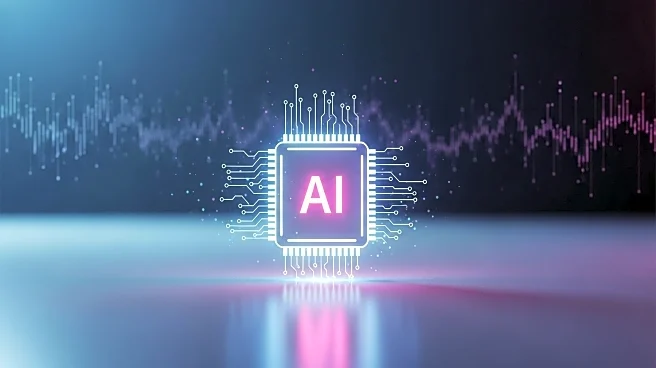What's Happening?
Meta CEO Mark Zuckerberg is intensifying efforts to attract top talent in the artificial intelligence (AI) sector by offering substantial signing bonuses, reportedly up to $100 million, to lure employees from competitors like OpenAI. This move is part of a broader strategy to enhance Meta's AI capabilities through its new AI Superintelligence Labs. The competition for AI talent is fierce, with other tech giants like Google and Microsoft also actively recruiting from startups and rival companies. Google's recent acquisition of Varun Mohan, co-founder of AI startup Windsurf, into its DeepMind division, and Microsoft's recruitment of employees from Google DeepMind, highlight the ongoing 'AI talent war.' The high demand for AI specialists is driven by the significant investments required to develop advanced AI systems, with companies like OpenAI and Google spending millions on building large language models.
Why It's Important?
The aggressive recruitment strategies by major tech companies underscore the critical importance of AI talent in driving innovation and maintaining competitive advantage in the tech industry. The substantial financial incentives offered to AI specialists reflect the high stakes involved in developing cutting-edge AI technologies. This trend could lead to a concentration of talent within a few large corporations, potentially stifling innovation in smaller startups and traditional industries that cannot match the lucrative compensation packages. Sectors such as insurance, healthcare, and logistics may face challenges in attracting the necessary talent to innovate and remain competitive. The ongoing 'AI talent war' highlights the broader economic implications of AI development, as companies invest heavily in human capital to secure their positions in the rapidly evolving tech landscape.
What's Next?
As the demand for AI talent continues to rise, tech companies are likely to maintain or even increase their investment in attracting top specialists. This could lead to further consolidation of talent within major corporations, potentially widening the gap between tech giants and smaller firms. The high salaries and structured environments offered by large companies may appeal to many AI professionals, but some may still choose the dynamic and innovative atmosphere of startups. Until the costs of developing advanced AI models decrease, the trend of offering substantial financial incentives to AI specialists is expected to persist. This ongoing competition for talent may also drive further advancements in AI technology as companies strive to outpace their rivals.
Beyond the Headlines
The concentration of AI talent within a few large corporations raises ethical and economic questions about the distribution of resources and opportunities in the tech industry. The disparity in financial capabilities between tech giants and smaller firms could lead to a monopolization of AI innovation, potentially limiting diversity in technological advancements. Additionally, the focus on high salaries and bonuses may overshadow other important factors in talent acquisition, such as workplace culture, job satisfaction, and opportunities for professional growth. As the AI industry continues to evolve, stakeholders may need to consider strategies to ensure a more equitable distribution of talent and resources across the sector.










